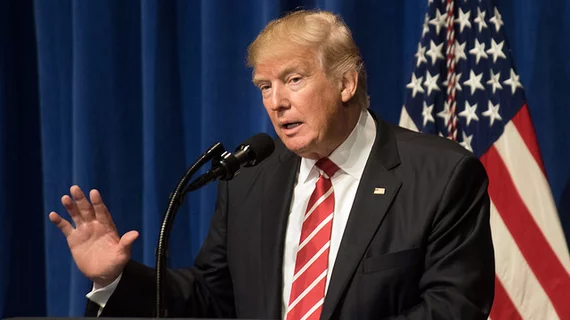Trump declares national state of emergency over coronavirus
President Trump declared a national emergency over the new coronavirus, COVID-19, on March 13, freeing up more funds to tackle the virus and respond to the crisis.
Up to $50 billion more in federal aid could be released as a result of the action. The government already earmarked $8.3 billion in spending to deal with the COVID-19 pandemic. The national emergency declaration comes as the number of COVID-19 cases in the U.S. continues to climb; there were 1,629 cases and 41 deaths in the U.S. as of March 13, according to the CDC.
“The President’s declaration gives HHS important powers to enhance state and local communities’ ability to respond to the outbreak, including flexibility around Medicare and Medicaid rules,” HHS Secretary Alex Azar said in response to the declaration. “The entire Trump administration, including our leaders at HHS, is identifying every flexibility we can offer and any obstacle we can eliminate to help those on the frontlines protect Americans from this outbreak.”
However, while more flexibilities to deal with the crisis have opened up, HHS experienced a cyberattack over the weekend that was intended to slow down the U.S. response. The incident was considered a “campaign of disruption and disinformation” aimed at “undermining the response to the coronavirus pandemic,” Bloomberg reported, citing people familiar with the matter. The attack may have come from a “foreign actor,” as well, though who was behind the attack has not been reported or confirmed by U.S. officials.
The attack attempted to overload HHS servers but didn’t succeed to slow the agency down significantly, and all HHS and federal network have been functioning normally, a spokesman or the National Security Council told Bloomberg.
Also over the weekend, U.S. Surgeon General Jerome Adams urged hospitals to consider scaling back or “stopping elective procedures” in order to brace for coronavirus patients on March 14. In response, several hospital groups––including the American Hospital Association, AAMC, Children’s Hospital Association and the Federation of American Hospitals––said they were “concerned about recent comments by government officials” about elective surgeries that didn’t clarify the various levels of necessary care.

